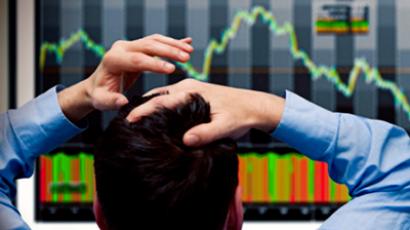S&P $2 trillion error does not call off US downgrade
The downgrade that came days after Congress finally agreed to raising the debt ceiling has been decided despite a US$2 trillion miscalculation, S&P admitted. European markets are expected to respond to the downgrade on Monday.
S&P officials notified the Treasury Department early on Friday that it was planning to downgrade the US government’s credit from the top-notch AAA rating it has held for decades.After just two hours of analysis, Treasury officials discovered that S&P had miscalculated future deficit projections by close to $2 trillion. It immediately notified the company of the mistakes, which S&P admitted.
S&P had to rouse several of its European committee members in the middle of the night to decide whether to go ahead and downgrade America’s crediting rating.The miscalculation and the time the ratings agency took to reconsider the downgrade are among the controversies surrounding the decision to downgrade the US, which has held the agency’s top triple-A rating since 1941.
Kevin Zeese, director of comehomeamerica.us, says one of the mistakes that led to the crisis in 2008 was the agencies’ decision to give undeservedly high ratings to Wall Street banks. “It definitely had some problems before the last collapse, giving Wall Street banks ratings they did not deserve, and I would say they were one of the key causes of the crash,” he said. “Whether it is cleaning it up now or it is showing its power – who knows what is going on. But the reality is it comes at a very shaky time.”
The chief economist with Deutsche Bank in Russia, Yaroslav Lisovolik, told RT one of the reasons for the downgrade is the desire of rating agencies to bolster their credibility.“The rating agencies want to be whistle-blowers, not only react to the crisis situations that have already happened,” he said.He added it is likely the other big agencies – Moody's and Fitch – will rethink their ratings.“It is a possibility because some of the rating agencies have a negative outlook on the current rating for the US, and that implies that within a year or so they might revise the rating for America,” Lisovolik explained.Lisovolik believes on Monday we will see quite an emphatic international reaction in terms of stocks and the world will start looking for an alternative reserve currency that might replace the dollar.He added that the downgrade is likely to have negative implications for Russia.“We will see a downward pressure on the stock market in the short term. And to some degree this will lead to outflows from emerging markets, and Russia is an emerging market. This will have a negative effect on Russia’s assets and most notably on the stock market,” he concluded.
Grigory Birg, an analyst for Russia's InvestCafe agency, shares the view that credit agencies are trying to hold onto their credibility. He says investors are now criticizing credit agencies because they did not recognize the risks for the world economy which led to the current crisis.“The [US credit rating] downgrade reflects a fundamental problem with the American economy – that they are living beyond their means, increasing the debt, running the budget deficits, and then their political problems which do not make it [the situation] better,” Birg added.














